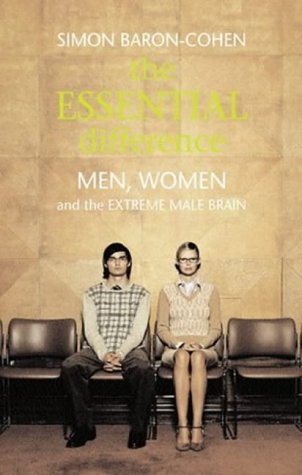What do you think?
Rate this book


Paperback
First published January 1, 2003


on average, females spontaneously empathize to a greater degree than do males...on average, males spontaneously systemize to a greater degree than do females (p. 2-4)
The central claim of this book is that more [emphasis in the original] males than females have brain type S, and more females than males have braintype E. (p.8)
To summarize, neither brain type E or S are better or worse than the other. They appear to have been selected as specializations for entirely different goals and niches. (p. 132)
In this example, I have systemized a women's fertility, in others words, I have treated it as a system that is lawful. The input is the woman's ovaries, the operation is the increase in a woman's age, and the output is a woman's risk of miscarriage.